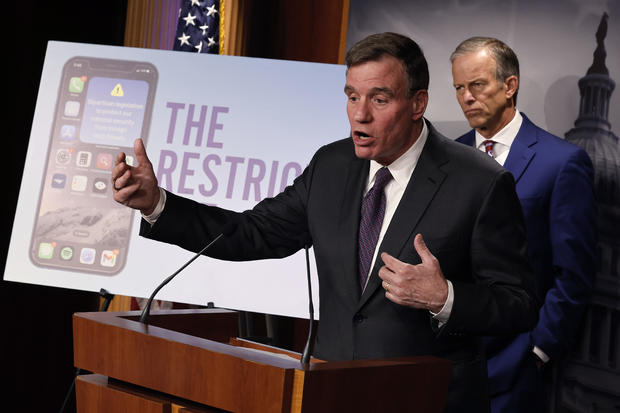TikTok, facing scrutiny, launches "critical" new data security measures in Europe
TikTok announced on Wednesday that it will be implementing a new security measure in Europe called "Project Clover," which is intended to strengthen existing protections for user data — and perhaps address concerns in the face of political pressure.
The company says the new policies will be implemented throughout the remainder of the year, and into 2024.
"Over 150 million people across Europe come to our platform every month to express themselves, learn new hobbies or skills and grow their business," read a press release by TikTok's vice president of government relations in Europe, Theo Bertram. "With such scale comes significant responsibility — building trust by ensuring the safety, privacy and security of our community and their data is critical."

According to the social media platform, "Project Clover" will enhance existing data security measures by implementing "security gateways that will determine employee access to European TikTok user data and data transfers outside of Europe." The gateways will be overseen by a third-party security company in Europe, with more details on this independent verification system to be announced.
The platform is placing a renewed emphasis on local data storage, opening two new data centers in Ireland and Norway, in addition to an existing data center in Ireland. The operational cost of the centers is over $1.2 billion each year.
TikTok has been been facing increased scrutiny in the West over security concerns, as officials express mistrust about the platform and its Chinese parent company. The European Parliament, European Commission and the EU Council have all imposed bans on TikTok on staff devices; the app has also been banned on U.S. government devices.
In the U.S., lawmakers are considering legislation that would ban the platform nationwide.
- In:
- Cybersecurity and Infrastructure Security Agency
- TikTok

C Mandler is a social media producer and trending topics writer for CBS News, focusing on American politics and LGBTQ+ issues.
Disclaimer: The copyright of this article belongs to the original author. Reposting this article is solely for the purpose of information dissemination and does not constitute any investment advice. If there is any infringement, please contact us immediately. We will make corrections or deletions as necessary. Thank you.







